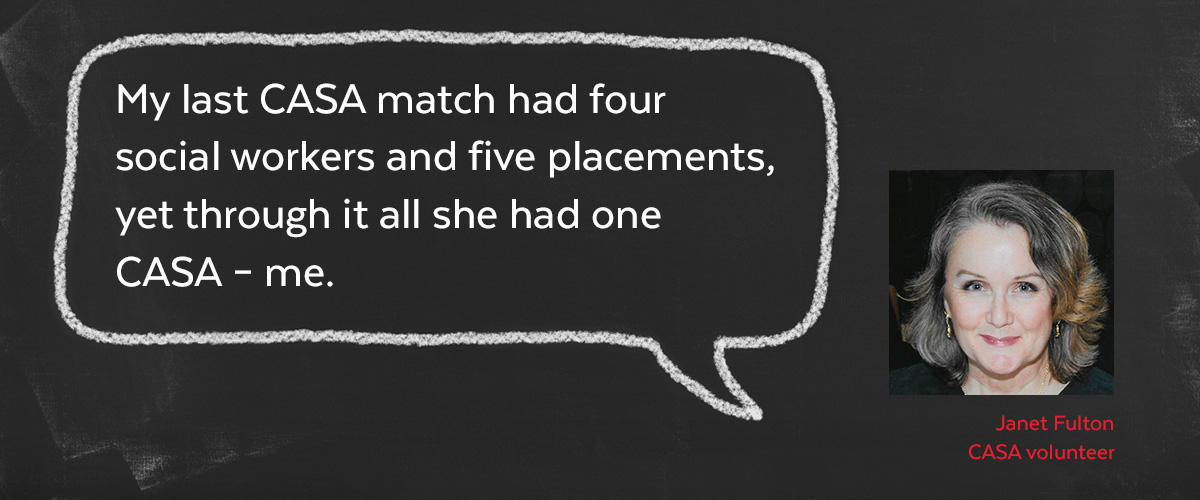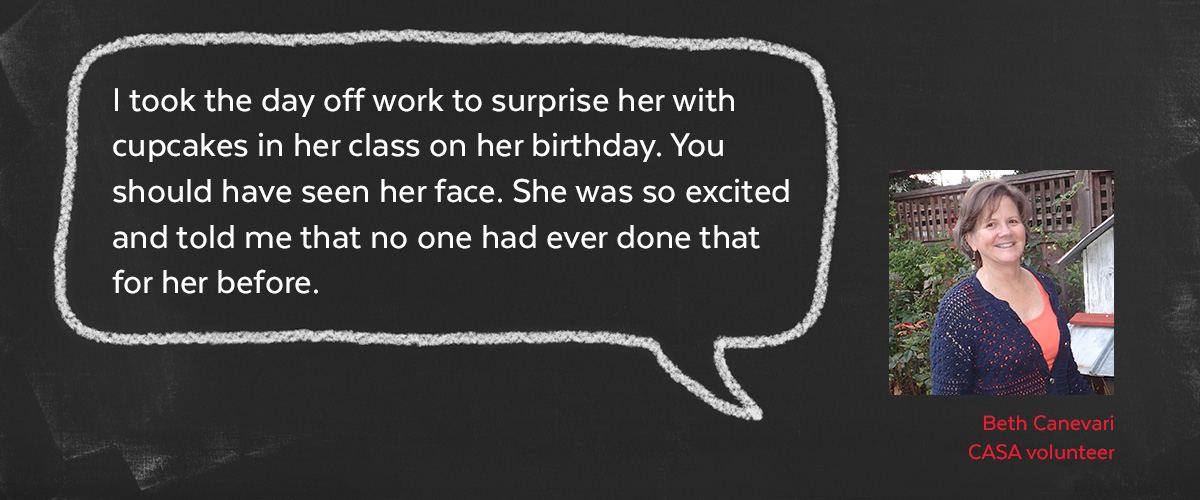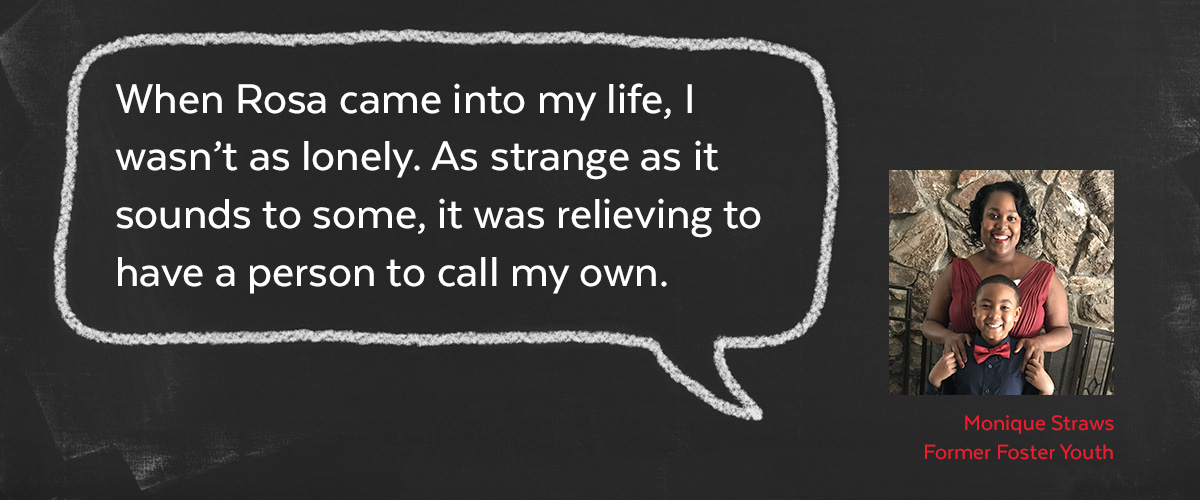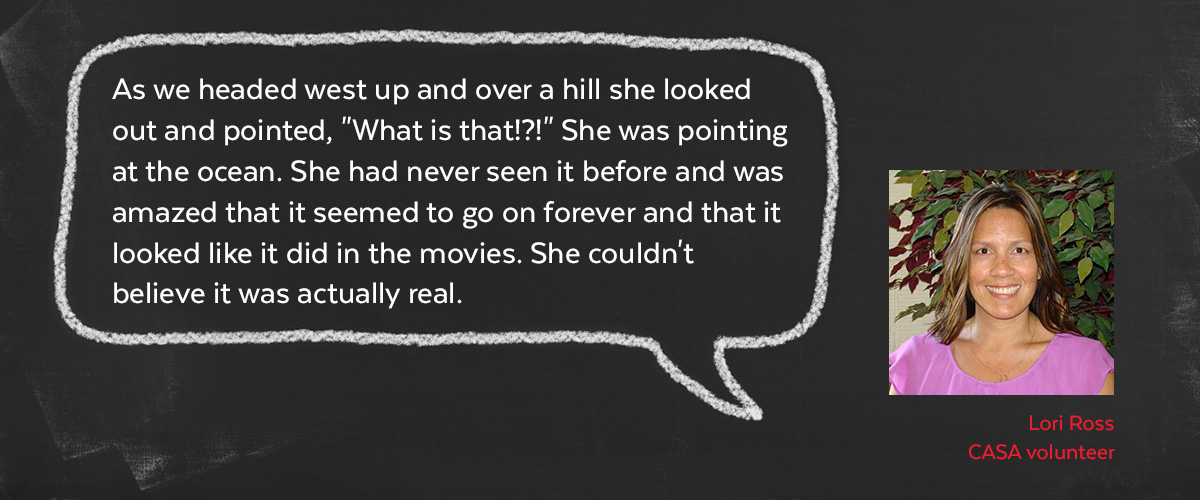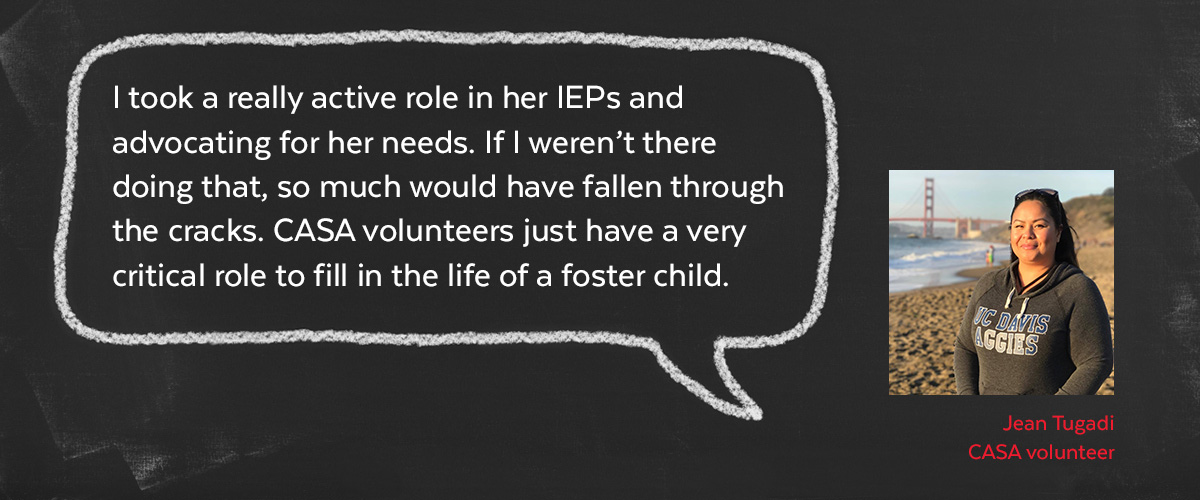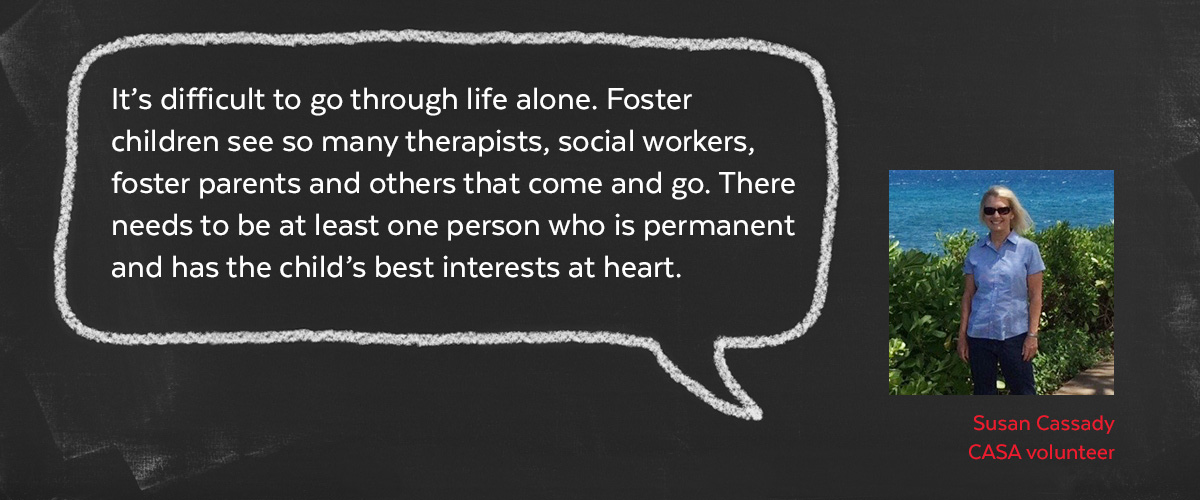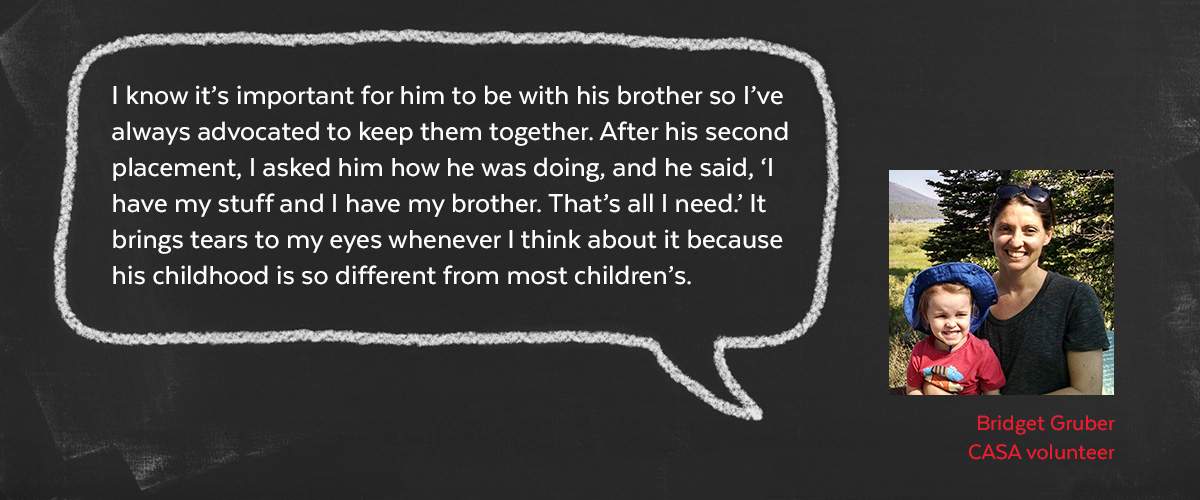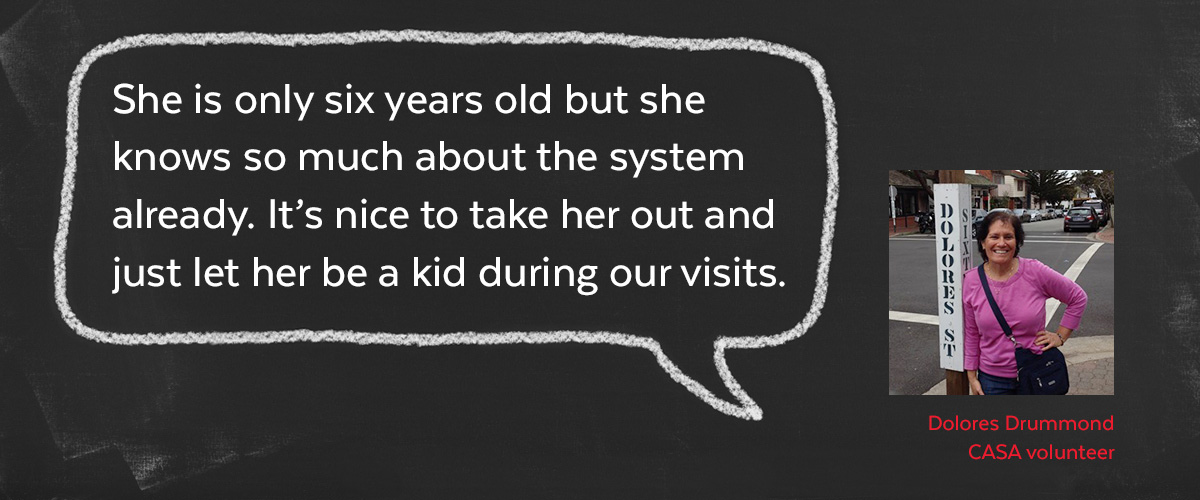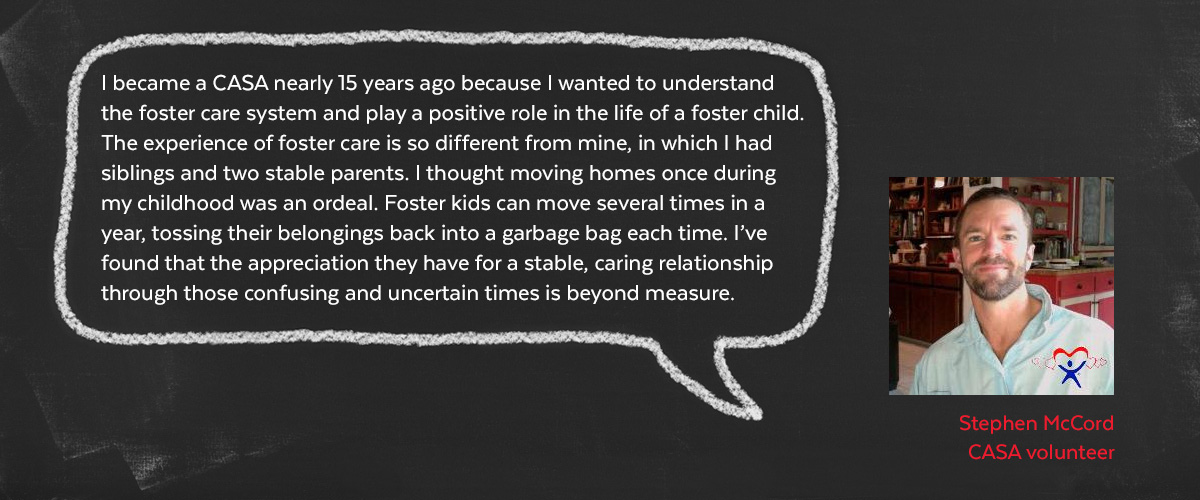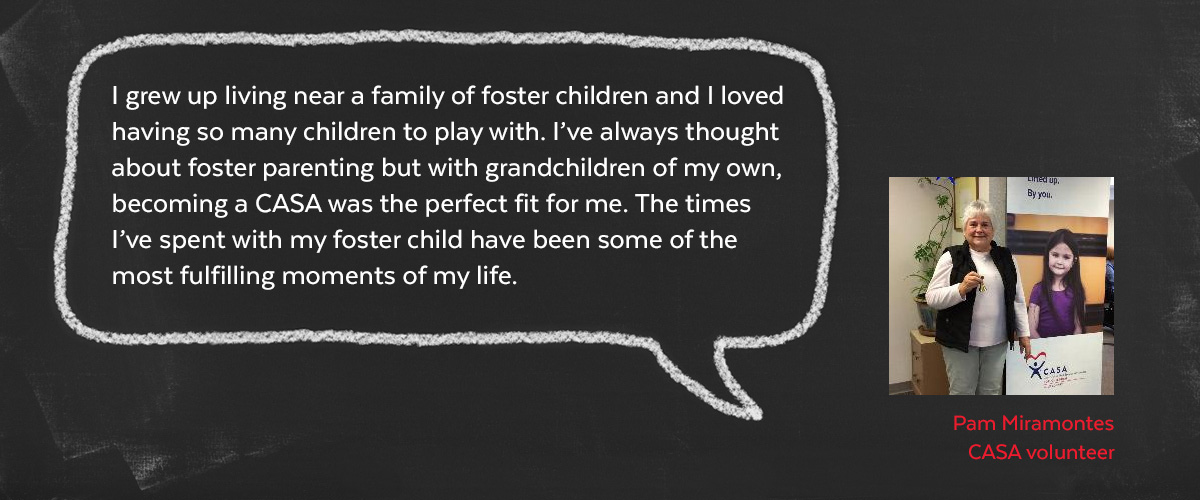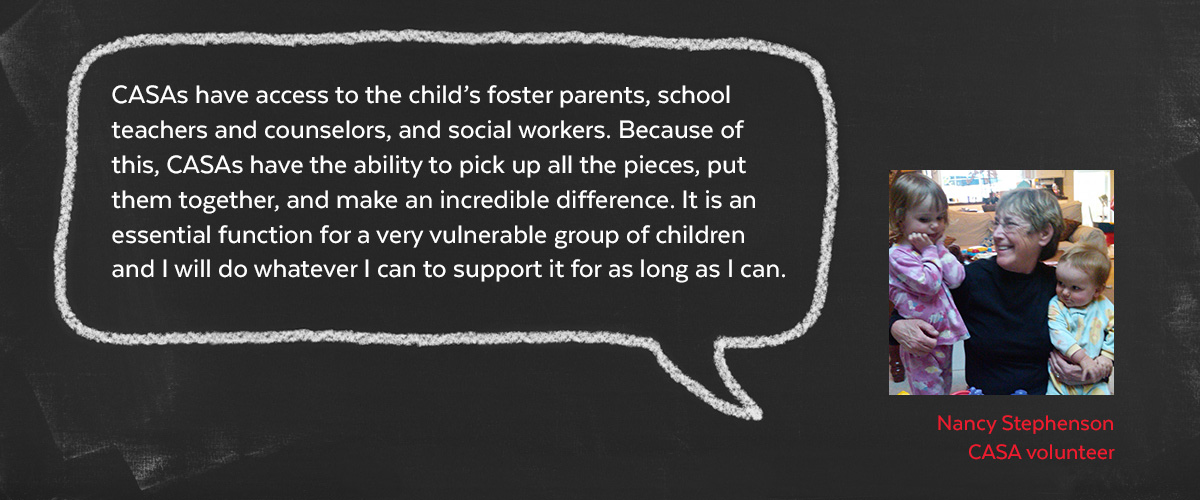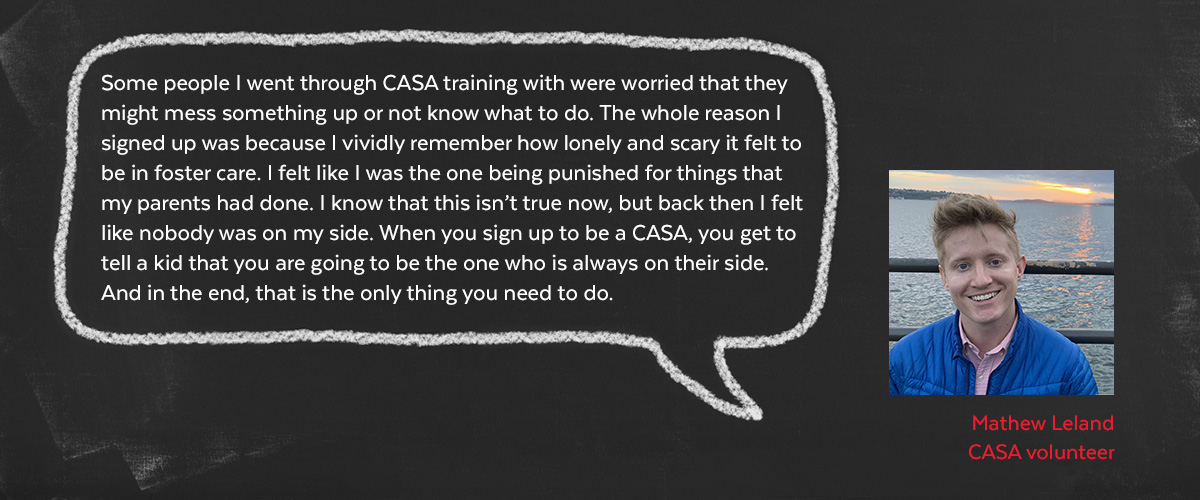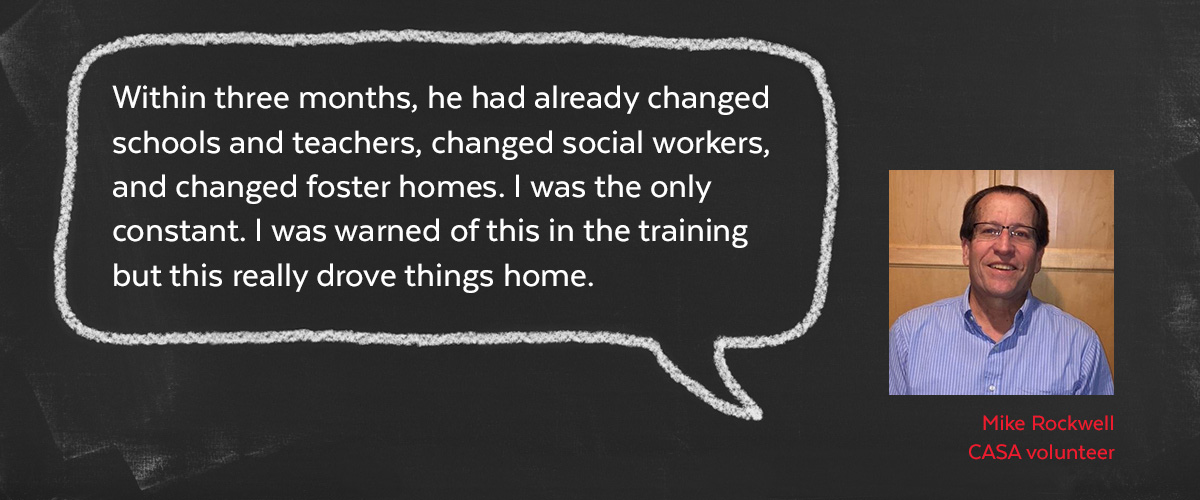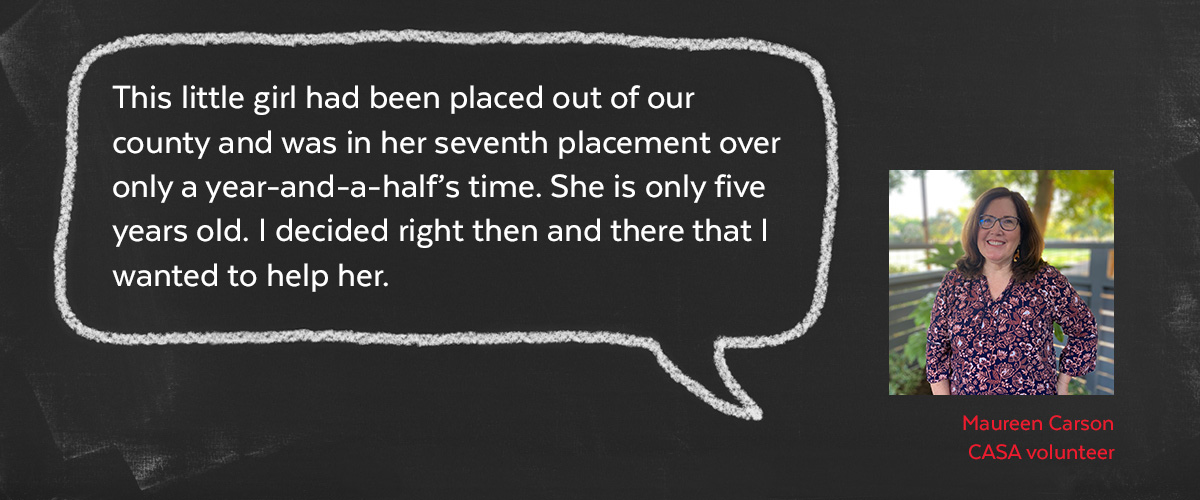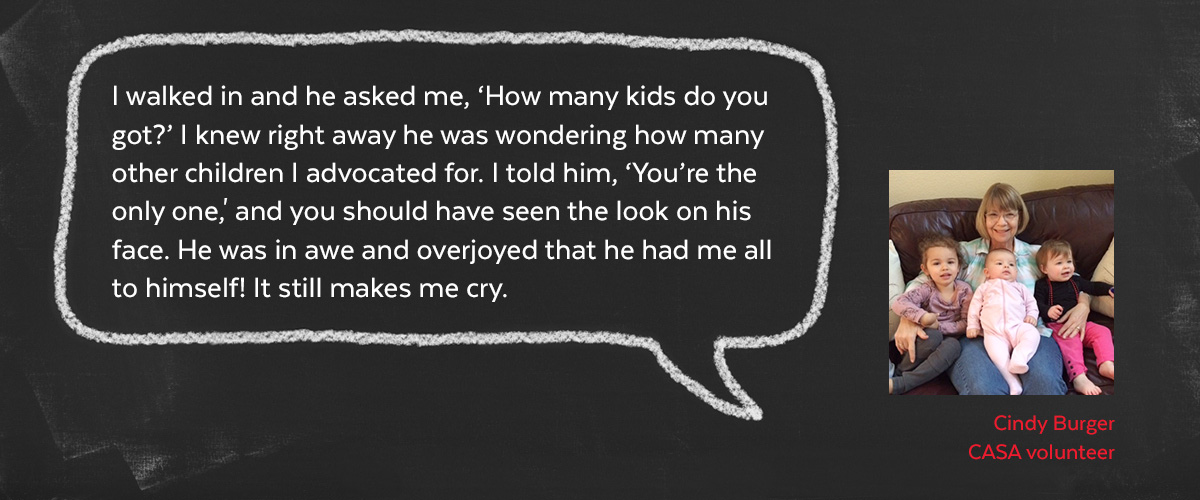Susan Cassady started her career as a teacher, then became a school principal, and finished her career as director of alternative programs in Yolo County before she retired. As director of alternative schools, Susan worked with a couple of CASAs.
She didn’t have time to become a trained CASA then, but remembered the impact CASAs made when she retired and pursued becoming a CASA volunteer. She became a CASA in 2013 and is currently serving her fourth CASA child.
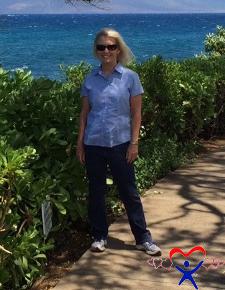
Susan relates to the struggles that foster children face. Her father was an oil engineer and they moved around the country frequently, sometimes remaining in one place for just six months. “It was tough. Sometimes I couldn’t remember my phone number and I constantly had to meet new teachers and make new friends. While there wasn’t much consistency to lean on, at least I had my family for continuity. Foster children don’t have that.”
Knowing how important it is for foster children to have continuity in their lives, Susan goes out of her way to make sure she is there for her CASA child. “My current CASA child and I are going into our fourth year together. She was recently moved to southern California. It’s not easy, but I buy plane tickets and visit her whenever I can afford to do so. I want her to know that I will always be there for her.”
And the continuity has paid off. “At our last visit, I really felt like my CASA child made a huge leap forward. She loves to sing and often uses song as an outlet for her emotions. She would often sing sad or angry songs during our visits, but this time she just sang happy songs. At that point, I knew without her even telling me that she was going in a positive direction.”
As Susan reflects on her work as a CASA, she hones in on how important the relational component is both for the child’s well-being and for the advocacy component. “It’s difficult to go through life alone. Foster children see so many therapists, social workers, foster parents and others that come and go. There needs to be at least one person who is permanent and has the child’s best interests at heart.” Susan feels so strongly about this that she still visits with a former CASA child every other week. “It’s just a priority for me to show children that they really matter.”
As for her own life, Susan has a large family and many volunteer commitments. She is a mother to three children and has two grandchildren with another on the way. She is on the Board of Trustees for the Community Care Car in Woodland, an organization that provides rides to senior citizens, and a member of Neighborhood Court, a restorative justice program for adults. She is also part of the Juvenile Review Board. With some careful planning, however, Susan makes it all work. “Time is just a number. Where there is a will, there is a way.”
Thank you, Susan, for everything you do in our community. Many people are better off because of your dedication to making the world a better place.

